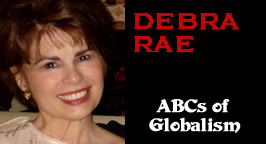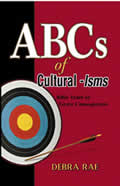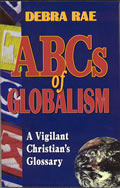CENSORSHIP
BY DESIGN: CRIMINALIZATION OF CHILD EVANGELISM
PART 1
By
Debra Rae
March 28, 2015
NewsWithViews.com
First Things First, Part 1
Bible literacy and good news are rare commodities in our postmodern world. Thankfully, light continues to shine, even in darkness. Since 1937, an interdenominational, nonprofit organization, Child Evangelism Fellowship, has reached over 15.6 million children worldwide with clear, age- appropriate presentation of the Gospel (“Good News”) of Jesus Christ. CEF has supported 62,393 Good News Clubs all the while helping 609 national missionaries in 93 countries stay in children’s ministry through the Sponsor-A-National program.[1]
Compliments of CEF, 190 countries have received nearly twelve million pieces of Gospel literature. Lives remarkably changed testify to its value, and the Evangelical Council for Financial Accountability attests to the ministry’s integrity. Nonetheless, CEF faces formidable “censorship by design” in tireless efforts of secularists to criminalize child evangelism through after-school clubs. Fashioning well-meaning CEF volunteers as pawns of the Political Right, Good News Club antagonists advance their own political agenda in the interest of “a modern secular democracy” ostensibly envisioned by our nation’s founders.[2]
First Things First: Our Founding Principles
One such Founding Father, Patrick Henry was an attorney, orator, and politician in the 1770s. Having served as first and sixth post-colonial Governor of Virginia, Henry was adamant, "It cannot be emphasized too strongly or too often that this great nation was founded, not by religionists, but by Christians; not on religions, but on the Gospel of Jesus Christ. For this very reason peoples of other faiths have been afforded asylum, prosperity, and freedom of worship here."[3]
In 1812, Francis Scott Key echoed Henry’s sentiments adding, "The patriot who feels himself in the service of God, who acknowledges Him in all his ways, has the promise of Almighty direction; … he will therefore seek to establish for his country … the name of a Christian nation." Key is credited with having written lyrics for our national anthem.[4]
“A Christian nation” attracts and embraces the grace of God—as did French Huguenots, Puritans at Plymouth, and devout early settlers of the new world. Founding principles allowing for religious freedom, rule of law, free enterprise, and right to private property are firmly embedded in Bible truth; but the label does not presume each and every founder, settler, parishioner, and citizen to be “Christian” by faith, nor “godly” by nature.[5]
Notwithstanding, a two-part work published in 1835 and 1840, Democracy in America, recounted observations of a famous French statesman and historian, Alexis de Tocqueville. He observed that Christianity in the United States reigns “by universal consent” and “without obstacle.” In his view, a politician attacking Christianity would find himself alone and abandoned by his constituency.
Tocqueville’s work was distinguished as "the most comprehensive and penetrating analysis of the relationship between character and society in America that has ever been written." He explained the religious aspect of America ”belongs to the whole nation and to every rank of society. … There is no country in the world where the Christian religion retains a greater influence over the souls of men than in America.” Its influence is “powerfully felt over the most enlightened and free nation of the earth.”
Supreme Law of the Land
Not until he heard her pulpits “aflame with righteousness” did he grasp the secret of America’s genius and power. “America is great because America is good,” he opined; and “if America ever ceases to be good, America will cease to be great.”[6]
Time-and-time again the Christian underpinning of America has been memorialized through Supreme Court judgments proclaiming our civilization and its institutions to be emphatically Christian (Church of the Holy Trinity v. United States, 1892). In a word, we are “a Christian people” (United States v. Macintosh, 1931).[7]
Religious Education (Noah Webster)
Indisputably, education in religion was central to our Founders. Signer of the Declaration of Independence Benjamin Rush wrote, "The only foundation for a useful education in a republic is to be laid in religion. Without this, there can be no virtue and, without virtue, there can be no liberty; and liberty is the object and life of all republican governments."[8]
Having begun in 1789, and reaching its peak the first decade of the 20th century, the Sunday school movement set the standard for America’s public education movement.[9]
America’s acknowledged father of public education, Noah Webster proclaimed the Bible to be her “basic textbook in all fields." Without it, he warned, "Education is useless." Webster further charged government with responsibility for disciplining youth “in sound maxims of moral, political, and religious duties" as contained in the Bible.
In 1832, Noah Webster published his History of the United States in which he expressed sincere desire that “our citizens should early understand the genuine source of correct republican principles”—namely, the Bible. He believed the Christian religion is “one of the first things in which all children under a free government ought to be instructed.”[10]
• America’s First Textbook: The Bible
While many textbooks were employed in public schools, among the most important resources used were the Hornbooks (containing the Lord’s Prayer), over 500 different catechisms, the New England Primer, Webster's Blue-Backed Speller based on God’s Word, and McGuffey Readers that, other than the Bible, "represent the most significant force in the framing of our national morals and tastes."[11]
The Bible, in fact, was the public school’s central text, which Patrick Henry praised as "worth all other books, which have ever been printed." For good reason, the New Haven Code of 1655 required that children be made "able duly to read the Scriptures … and in some competent measure to understand the main grounds and principles of Christian Religion necessary to salvation."
Over decades, the United States Supreme Court obliges teaching what the Bible alone can teach, a pure system of morality (Vidal v. Girard’s Executors, 1844). Traditionally, the Court noted, organized education in the West was church education, primarily study of the Word and ways of God (McCollum v. Board of Education, 1948).[12]
Vociferous opponents of Child Evangelism Fellowship ignore that the Supreme Court ruled secularism, not Christianity, as unconstitutional (Engle v. Vitale, 1962, as quoted in Stone v. Graham). Given that the history of man is inseparable from the history of religion, facilities of government cannot offend religious principles (School District of Abington Township v. Schempp, 1963).[13]
Eerily prophetic, Benjamin Rush warned that removing the Bible from public schools would result in an explosion in crime. Even so, the tide turned. In 1850, Horace Mann sold America on the fanciful notion that, in one hundred years, secular education would solve crime and poverty; thereafter, reform under the likes of Jonathan Edwards and George Whitfield took a dive, sadly so.[14]
Secular Education (John Dewey)
In the 19th and early 20th centuries, the liberal theology movement captivated the mainstream. Although secularism evolved slowly, it effectively fashioned John Dewey’s Progressive Education Movement. Organized in 1919, the Progressive Education Association denounced rote learning, recitation, and conventional textbooks. Eventually, it promoted affective and holistic curricula, cultural relativism, and cooperative consciousness. By Dewey’s death in 1952, the overwhelmingly Protestant character of early public schools had vanished. No longer was public education “Christianized.” It now was solidly “secularized.”[15]
Education in the 21st Century
As the 21st century unfolds, a new course is being charted. The mission of today’s educational reform was best stated by Dr. Shirley McCune at the 1989 National Governors Conference—namely, “What we’re into is the total restructuring of our society.” Eventually, “change agents” (teachers) will train all “human resources”(students) for placement in specific, pre-determined, entry-level vocations with the best interest of our global economy in view.[16]
Honored as a 1999 Teacher of the Year by then President Clinton, Barbara Ray Gilles applauded this integrative, whole-systems approach to learning. “The school of the future,” she mused, “will draw more from the principles of kindergarten than from ‘higher education.’” Children will “follow their bliss” as they become meticulously groomed workers, not thinkers; followers, not leaders; group members, not individuals; subjective feelers, not objective thinkers—in short, secularists, not Christians.[17]
|
|
Bereft of qualifications commonly attributed to greatness, “one solitary life” has affected the life of man on earth more than all the armies that ever marched, all the navies that ever sailed, all the parliaments that ever sat, and all the kings that ever reigned. Yet study of the central figure of history is inexplicably censored from modern public school curriculum; and after-school clubs—e.g., the Good News Club—are indicted by secularists for proclaiming this fundamental message: Jesus loves the little children, all the children of the world.[18]
More to follow in Part 2.
� 2015 Debra Rae - All Rights Reserved
Footnotes:
1.
http://www.cefonline.com
(Accessed 15 March 2015).
2.
Katherine Stewart. The Good News Clubs: The Christian Right’s
Stealth Assault on America’s Children (USA: Public Affairs, a
Member of the Perseus Books Group, 2012). 7.
3.
William J. Federer. America’s God and Country: Encyclopedia
of Quotations (St. Louis: Amerisearch, Inc., 2000). 289.
4.
Quoted in William J. Federer, America’s God and Country.
351-352.
5.
Our Nation’s Heritage: Noble or Compromised?
(Accessed 15 March 2015).
6.
Alexis
de Tocqueville quotes (Accessed 15 March 2015).
7.
Quoted in William J. Federer, America’s God and Country.
599-603.
8.
Quoted in William J. Federer, America’s God and Country.
543-544.
9.
Debra Rae. ABC’s
of Globalism: A Vigilant Christian’s Glossary (Lafayette:
Huntington House Publishers, 1999). 249-254.
10.
Quoted in William J. Federer, America’s God and Country.
675-682.
11.
THE
MCGUFFEY READERS - 1836 version (Accessed 15 March 2015).
12.
Quoted in William J. Federer, America’s God and Country.
595-596, 603.
13.
Quoted in William J. Federer, America’s God and Country.
604-605.
14.
Societal Restructuring via Education
Transformation (Accessed 15 March 2015).
15.
Debra Rae. ABC’s
of Globalism: A Vigilant Christian’s Glossary. 249-254.
16.
1989
Governors Conference-Shirley McCune (Governors’ Conference
on Education, Wichita, KS (11-2-1989), accessed 15 March 2015). In
addition to her credentials as an authority in public education, Dr.
Shirley McCune co-authored The Light Shall Set You Free, a book on New
Age spirituality to pass on the Universal Laws of the Ascended Masters
of the Ancient Wisdom. Her book teaches that enlightened individuals
will collaboratively build the Seventh Golden Age of the Earth.
17.
Barbara Ray Gilles and Richard S. Kirby. Nurturing Civilization
Builders: Birthing The Best Schools In The World (Seattle: Ideal
Profit, 2004).
18.
Changing
Lives Online (Accessed 15 March 2015).













 Share
This Article
Share
This Article





